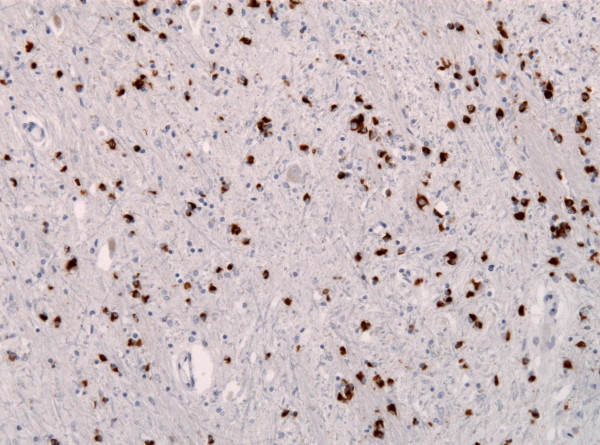Multiple system atrophy (MSA) is a neurodegenerative disease associated with the degeneration of nerves in multiple areas of the brain that affect vital functions such as movement, balance, and involuntary functions, such as bladder control, heart rate, digestion, and blood pressure regulation. This disease shares many similarities with Parkinson’s Disease. It develops later in adulthood, typically in the 50s and 60s, and affords its name to the fact that it affects multiple parts of the body. Following a slow and steady progression, most affected individuals die of respiratory failure after a period of seven to ten years. Differentiation between the two diseases at a clinical level is quite difficult; however, a preliminary study noted that autonomic indices, such as heart rate, breathing rate, and skin temperature, are more abnormal in patients presenting with MSA.
Until now, researchers have been unsure of whether this disease had environmental or genetic influences. Microscopic evaluation of neurons in individuals with MSA showed high levels of a protein called alpha-synuclein, prompting the theory that this protein may be overexpressed in patients with this disease.
A recent study led by UCSF scientists discovered that this protein is a prion, a protein that can fold into several different forms. Some of these forms can be transmitted to other prions, replicating in a way similar to viral infections. Over time, misfolded proteins build up in the brain and cause brain lesions, eventually causing disease. Thus, the name prion comes from the words protein and infection. A famous example of a prion infection is the one implicated in the rare, fatal, and degenerative brain disease Creutzfeldt-Jakob Disease. Every known prion disease affects neuronal tissue or structures within the brain. They are all currently untreatable and are universally fatal.
Image Source: Martin McCarthy
In the study, researchers injected brain tissue from individuals with MSA into mice engineered to have only one alpha-synuclein gene. These mice were unaffected by the injection likely because they were not over-expressing the protein; however, wild-type mice, with two copies of the gene and normal alpha-synuclein expression, to begin with, developed the disease, implying that MSA was transmitted from the tissue to the mice. Similar experiments involving the injection of brain tissue from individuals with Parkinson’s Disease did not cause any transmission to the mice.
This prion is the first discovered in 50 years and prompts new ways to approach developing treatments for MSA, while simultaneously raising concerns over the possibility of transmission for health care individuals and researchers who come into contact with the prion.
Feature Image Source: MSA aSynuclein by Jensflorian










